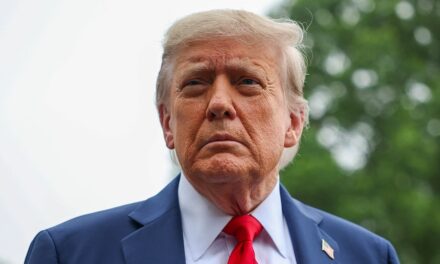The press has long been held as a critical institution in the functioning of democracy. Its role is to inform the public, hold power accountable, and provide clarity on the affairs that shape the nation. However, recent events surrounding the cognitive health of President Joe Biden have raised troubling questions about media credibility. The Hur report— a detailed analysis addressing concerns related to the President’s memory and cognitive capacities— was largely overlooked by mainstream media outlets, even as the manifestations of these concerns became more evident over time.
This pattern of dismissal is stirring a credibility crisis, as it exemplifies a growing trend where the media sidesteps uncomfortable realities in favor of narratives deemed more favorable or politically correct. The implications are far-reaching, not only for the landscape of political journalism but also for public trust in the information being disseminated.
The Hur report, named after its creator, included various assessments and analyses suggesting possible cognitive decline in Biden. Despite being based on data and expert opinion, the report received scant attention from major news organizations. Headlines and features that could have brought the report to the forefront were instead overshadowed by more sensationalized topics, leading the public to remain largely uninformed about critical issues at the heart of presidential fitness.
Supporters of a transparent press argue that the avoidance of such significant reports is detrimental to democracy itself. By failing to report on signs of cognitive decline, there exists a risk of normalizing or downplaying serious health concerns that could influence presidential decision-making. This neglect not only muddles public perception but also impedes essential discussions necessary for informed voting and civic engagement.
Critics argue that the mainstream media’s reluctance to discuss these issues stems from a deeper-rooted bias. They posit that acknowledging Biden’s cognitive struggles could lead to unwanted scrutiny or, worse, a wave of political backlash against their preferred party. By conveniently ignoring the evidence presented in the Hur report, it seems that a segment of the press may be prioritizing allegiance to political ideologies over their commitment to unbiased reporting.
The challenge is amplified by the fact that such cognitive assessments are sensitive topics. Discussions around mental fitness, especially concerning political leaders, are fraught with potential repercussions. Bringing them to light can lead to accusations of bias, enable political adversaries, and evoke concerns about the implications of discussing mental health in general. This anxiety may partly explain why many reporters chose to stay away from the Hur report’s findings.
However, this avoidance could backfire. With a growing number of Americans and members of Congress expressing concerns about Biden’s ability to govern due to perceived mental lapses, the media might face the consequences of this omission. As the President’s public appearances occasionally raise eyebrows—whether due to disjointed remarks or illogical statements—calls for transparency and accountability grow louder, demanding not only a reassessment of the President’s fitness but also a critical look at how these discussions are being managed in the press.
The situation poses a broader dilemma for news organizations that must navigate both their journalistic responsibilities and the political landscape in which they operate. They need to strike a balance between coverage that is sensitive yet forthright enough to ensure that the public is well-informed. In doing so, they risk discovering uncomfortable truths about leaders that might challenge existing narratives and present the risk of backlash or criticism.
The dilemma extends beyond cognitive health into other areas, including policy issues and the integrity of electoral processes. As voters increasingly find themselves in echo chambers, receiving information only that aligns with their preconceived notions, the media must recognize their role in shaping the public discourse. If concerns about Biden’s cognitive health are justified, for example, it is the media’s obligation to report them, irrespective of potential fallout.
Defenders of Biden may argue that accusations of cognitive decline stem from a younger generation’s misunderstanding or ageism towards older leaders. The narrative paints the President as merely a victim of circumstance rather than someone whose abilities may legitimately be in question. However, downplaying or dismissing these evaluations entirely can create a dangerous precedent, wherein valid concerns are ignored simply because of political bias.
This credibility crisis burrows deeper when contemplating the future of political journalism. As we progress further into the electoral cycle, questions regarding candidate fitness, particularly among aging leaders, will remain paramount. Other candidates may emerge, bringing their own stories and health narratives. If media organizations choose to follow the current trend of shielding voters from uncomfortable truths, they can risk alienating their audience—an audience already fed up with partisan reporting that fails to hold power accountable.
Furthermore, there is the added impact of social media, where sensational reporting often takes precedence over balanced analysis. The discord between traditional and digital media outlets has already done much to fragment the public’s understanding of issues, leading to increased polarization. As new platforms become primary news sources, the accuracy and integrity of information are put at even greater risk, creating an environment ripe for misinformation.
Restoring credibility requires a concerted effort from both journalists and media organizations. Investigative reports like the Hur analysis should be embraced and explored more thoroughly, allowing for a reasoned and open dialogue amongst the populace. Rather than running from difficult conversations regarding authority figures’ health or mental state, the press bears the responsibility to confront these realities head-on.
As voters prepare to head to the polls, the public’s need for transparent information is greater than ever. Media outlets must find a way to navigate partisan divides and avoid allowing political affiliations to dictate the news. Journalism, by its nature, should be impartial, a trusted source of objective analysis rather than a mouthpiece for political agendas.
The discussion surrounding President Biden’s cognitive health will only intensify in the critical months ahead. It serves as an important lesson in the responsibility of the press. Failing to engage with such topics diminishes the role of journalism in democracy and erodes public trust in a system that is poised to require undivided scrutiny in the face of leadership challenges. Perhaps this is the moment for the media to reassess not just one report but their responsibilities to the public they serve, advocating for greater transparency, accuracy, and accountability across the board.
Only through such a reexamination can the media hope to regain the public’s confidence and reaffirm its status as an essential pillar of democracy. As the narrative surrounding leadership health continues to evolve, the press must learn to adapt accordingly, ensuring that it upholds its foundational values and remains a credible source of information, rather than a participant in political gamesmanship.
































